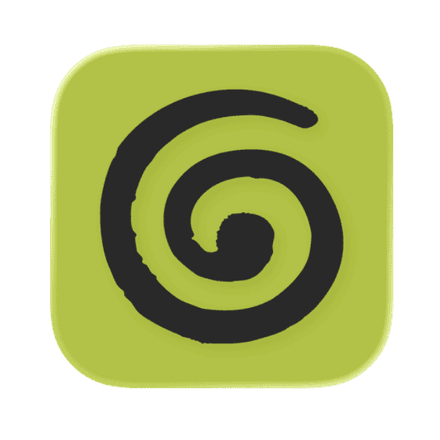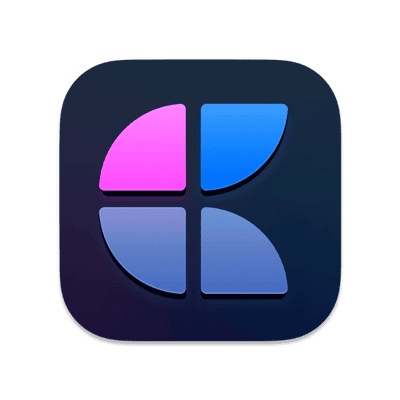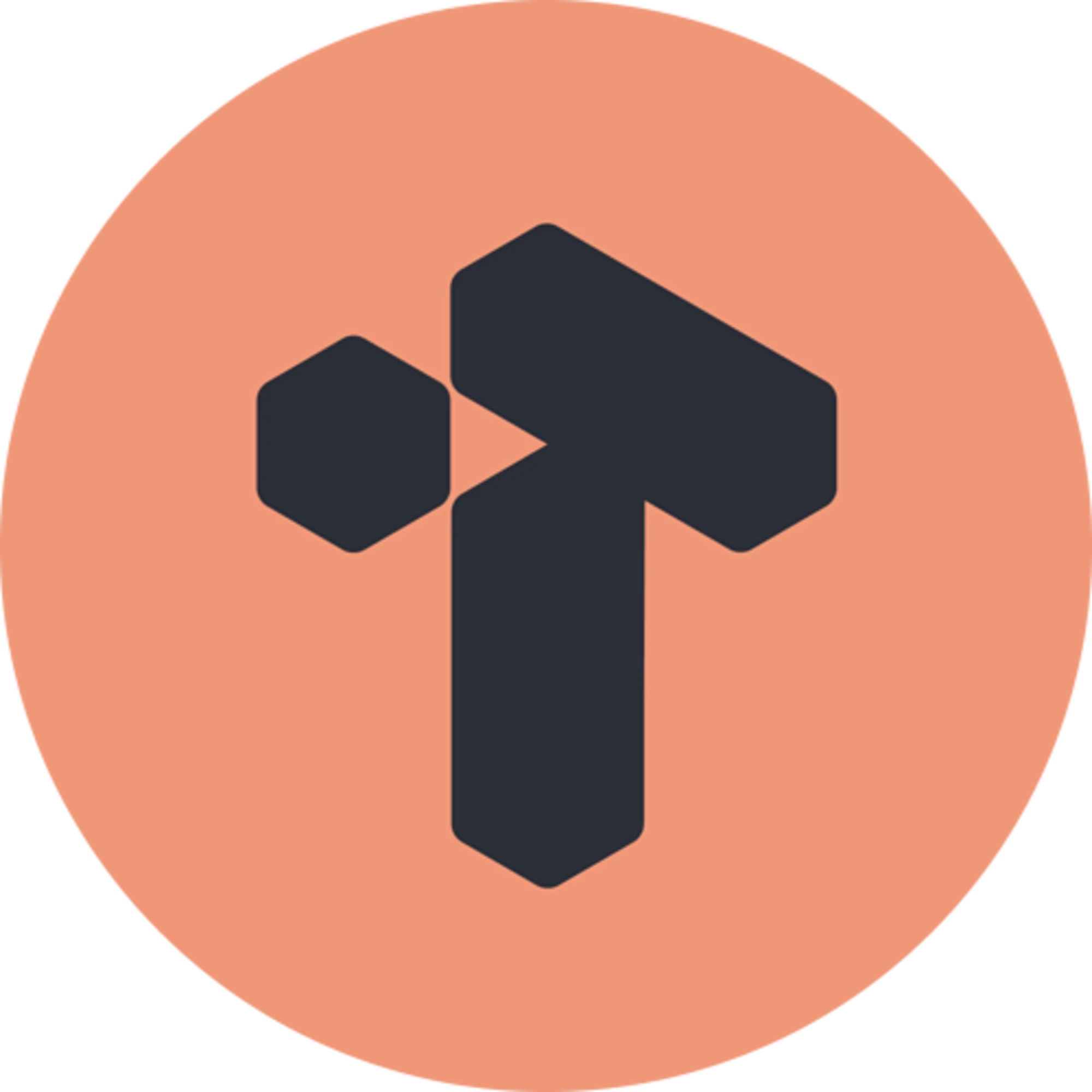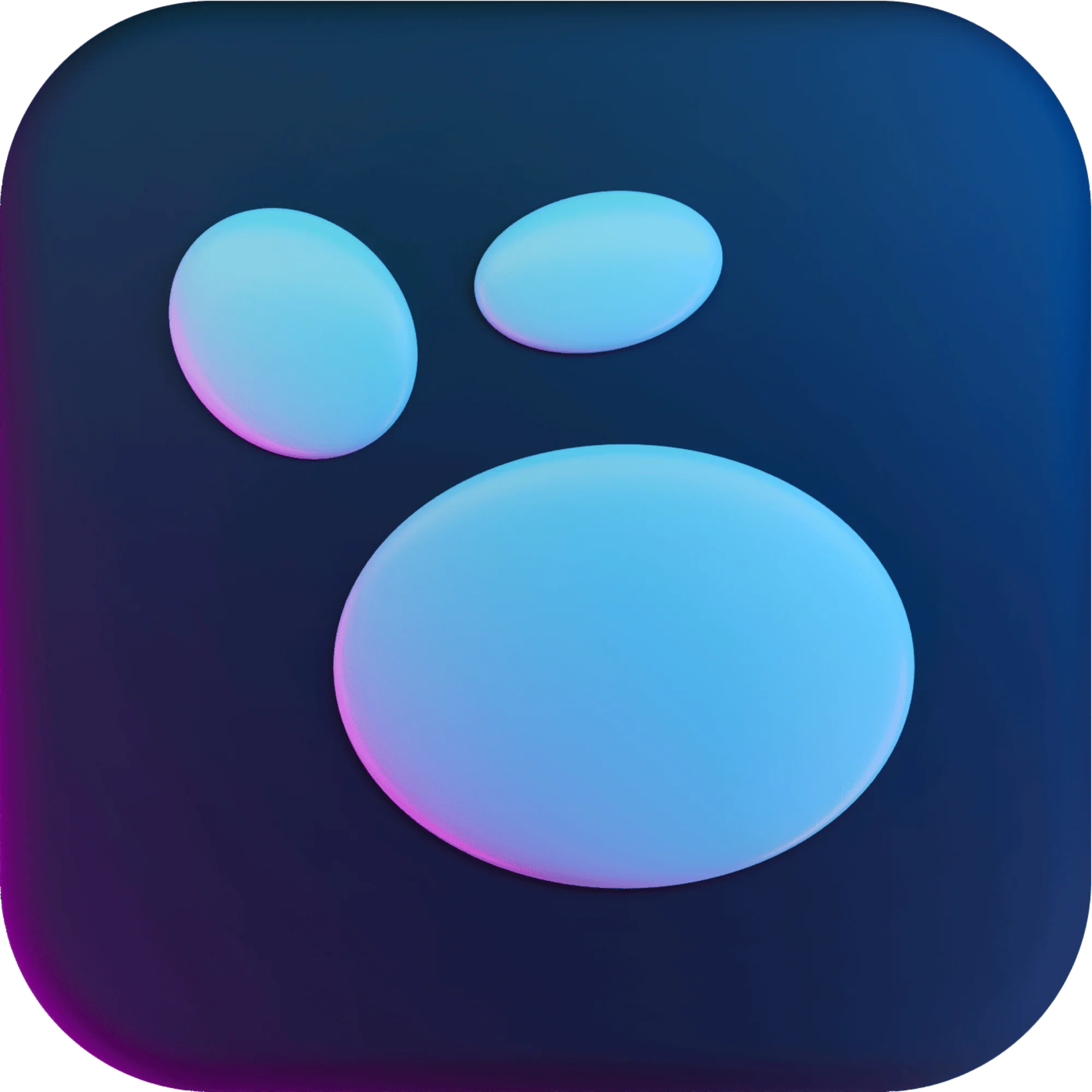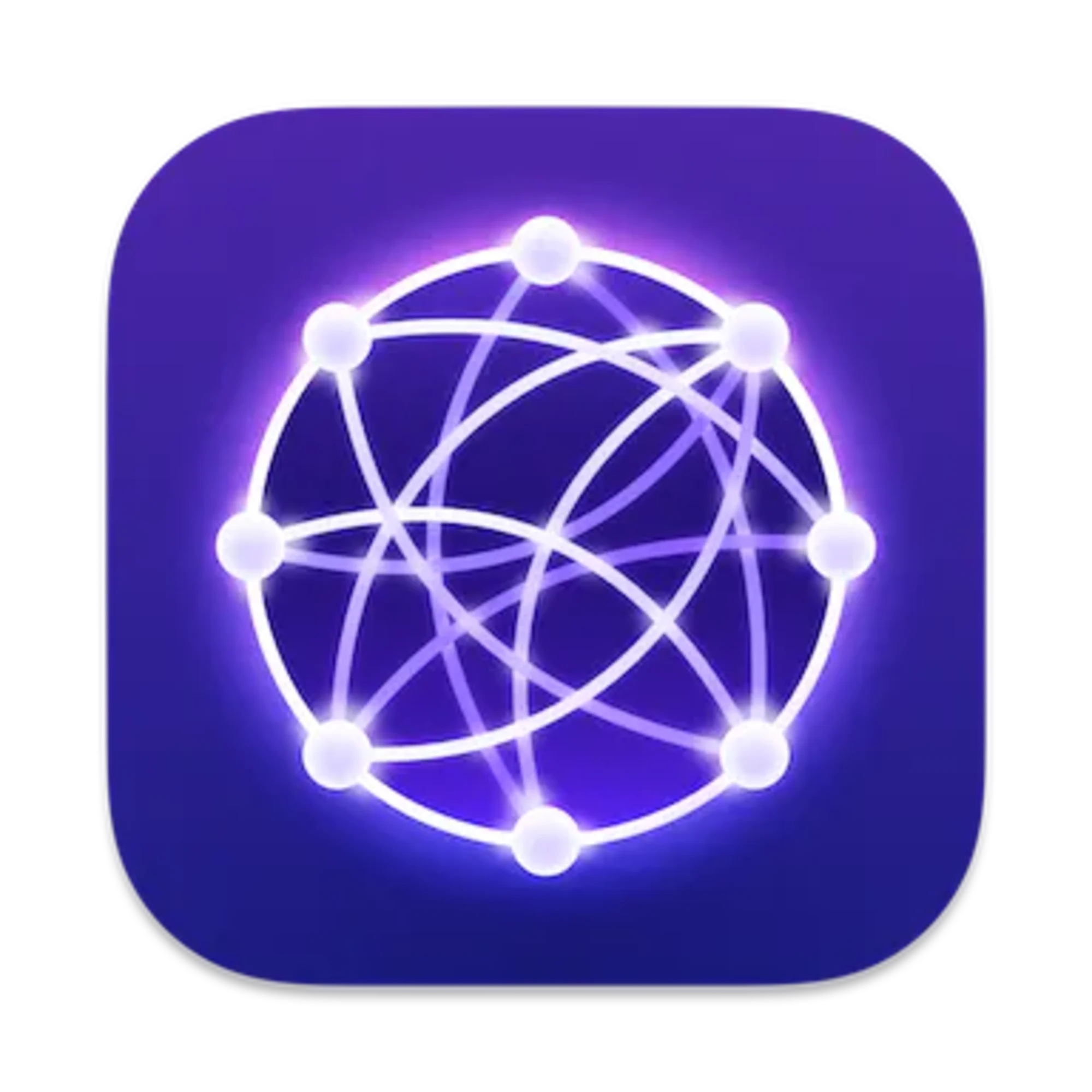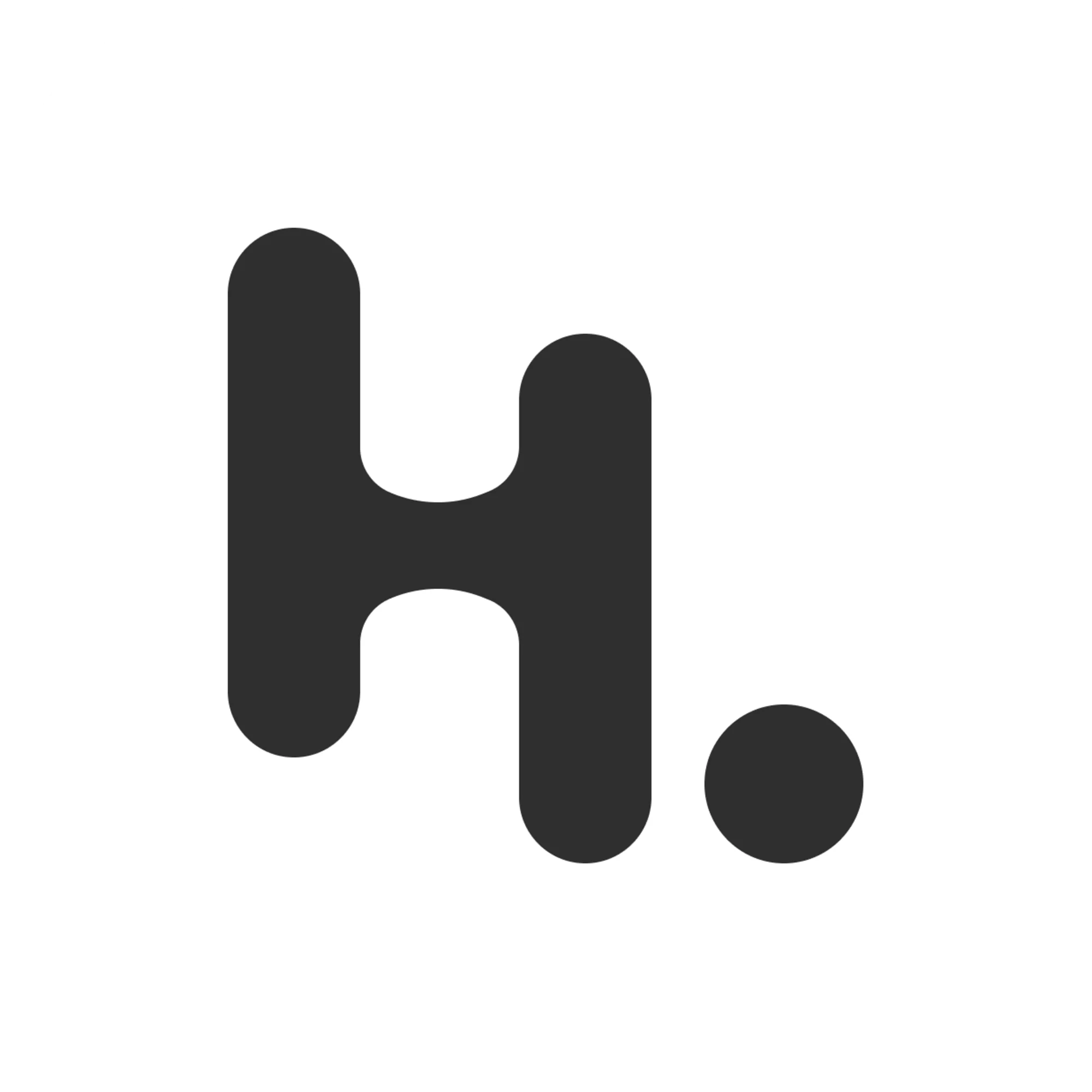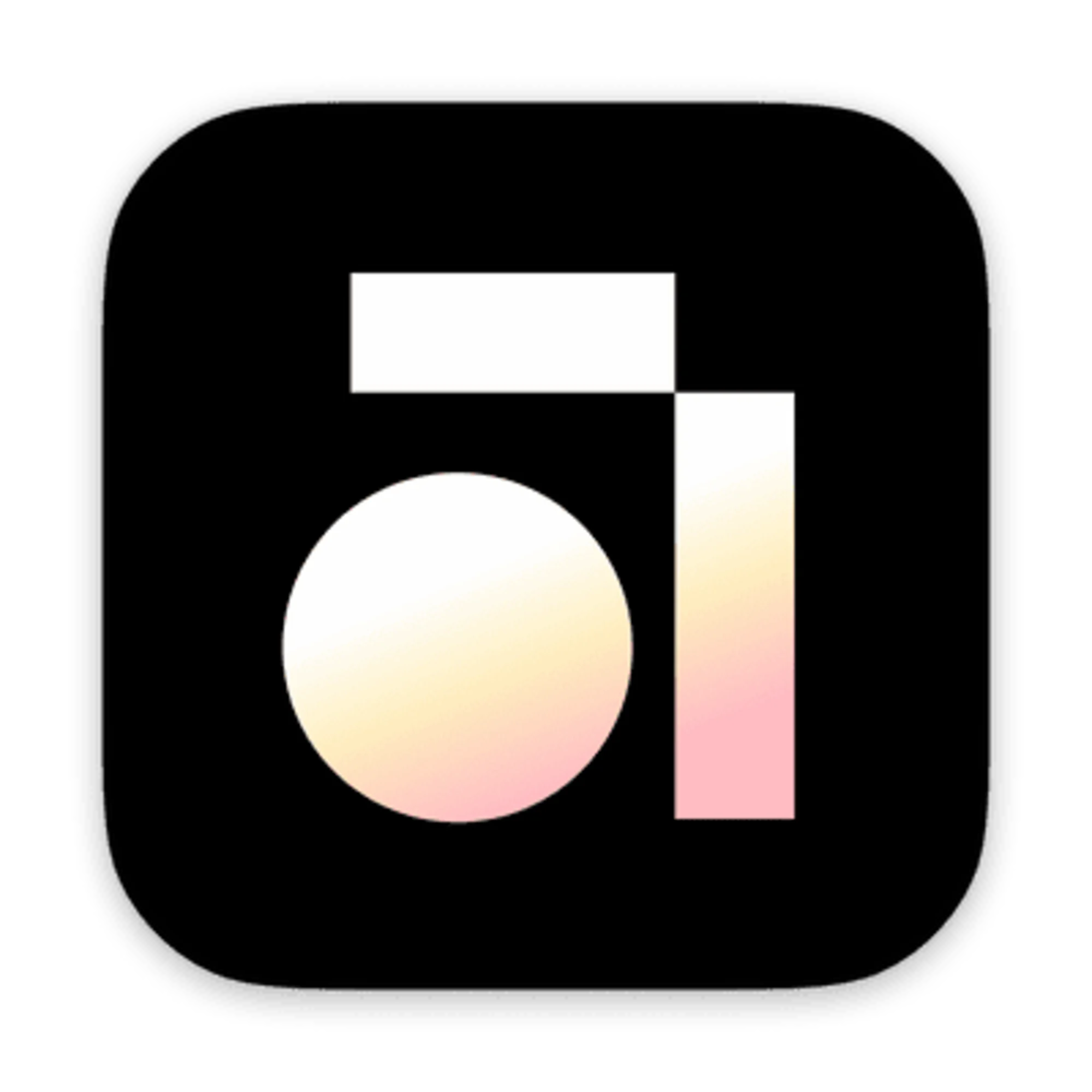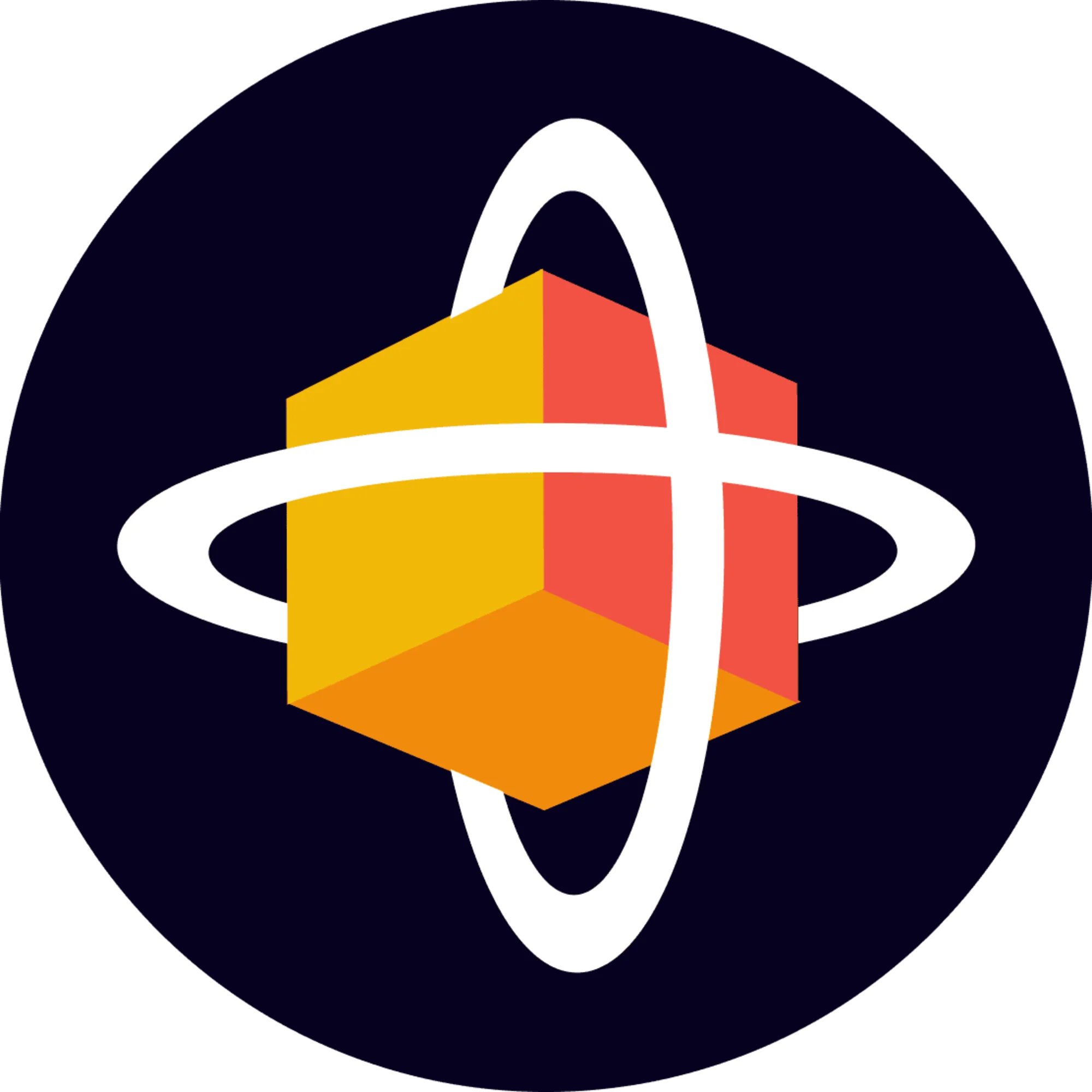PKM apps are basically posh versions of note-taking apps. They have become trendy recently and stand for personal knowledge management apps.
Many people have turned to this as a way to handle the following things better:
Connect and build relationships between notes. Visualize your notes in a graph-like structure. Go deeper with the research collection and recall of notes.
PKM apps have become a better way to extract more from your note-taking by allowing you to connect notes using backlinks, create graphs of how notes are connected, and resurface notes for later adoption in practices like Second Brain.
The whole PKM movement really took off around 2026, when people started realizing traditional note-taking apps weren't cutting it for knowledge workers. If you're still using folders and tags to organize everything, you probably know the pain: you create a note about a project, then six months later you can't remember which folder you dumped it in. Total nightmare.
That's where PKM apps shine. Instead of forcing you to pick one folder (is this note about 'Marketing' or 'Q4 Planning'?), these tools let you connect ideas naturally through backlinks. Type something like [[Project Alpha]] and boom, you have created a link that shows up in your graph view. Over time, you build this web of connected thoughts that actually mirrors how your brain works.
What is a PKM app?
PKM apps are like advanced note-taking apps that connect notes. This is called networked thought in the PKM world and helps to connect notes and build a graph view for exploring note relationships. PKM apps can help improve your knowledge management process. PKM stands for Personal Knowledge Management and is a note-taking style.
It is an advanced knowledge management system that many people look to as a way to organize and structure their notes better and use them more effectively in the future. Think of it this way: regular note apps are like filing cabinets, but PKM apps are more like a brain with neurons firing connections everywhere.
The beauty of PKM is you don't need to be perfect about organization upfront. You just capture ideas and link them as you go. Six months from now, when you stumble on a connection between two seemingly unrelated notes from different projects, that is when PKM really clicks. Honestly, once you see your first graph view with 200+ notes all connected, it is kind of addictive.
How We Chose These Tools
We tested dozens of PKM apps to find tools that actually help you build and navigate a knowledge base without drowning in complexity.
Linking and backlink capabilities
Can you create bidirectional links between notes? Apps without robust linking got cut immediately since that's the foundation of PKM.
Graph visualization
Seeing connections matters. We prioritized apps with clear, interactive graph views that help you discover relationships between ideas.
Search and discovery
Your knowledge base is useless if you can't find things. We tested search functionality, tag systems, and random note discovery features.
Data portability
Markdown and plain text storage only. Proprietary formats lock you in and defeat the purpose of building a long-term knowledge repository.
Learning curve vs power
PKM apps can be intimidating. We balanced powerful features against approachability for users new to networked thinking.
Community and ecosystem
Plugin availability, template libraries, and active user communities indicate long-term viability and extensibility.
We also considered mobile apps, sync reliability, and whether the tool felt like it enhanced thinking rather than becoming another chore. Not every PKM app needs AI or whiteboards, but flexibility helps as your knowledge base grows.
Obsidian
Best Value for All Round
Obsidian is a note-taking application that focuses on helping you connect notes using backlinks, graph view, and networked thought. Obsidian is the best free PKM solution on the market. If you're on one device, Obsidian is free forever, meaning you can use it and store those PKM notes on your device without worrying about upgrading.
There is a $4 monthly upgrade to link with the cloud and store your notes on one account across devices. If you're budget-conscious, focus on the desktop, and want your notes stored on a device, Obsidian is a healthy choice. With a good free plan and packed with features for PKM, Obsidian is the best PKM app overall.
What really sets Obsidian apart is the plugin ecosystem. There are literally hundreds of community plugins that extend functionality in wild ways: spaced repetition for learning, kanban boards for project management, even advanced AI integrations. The core app stays lean, but you can customize it until it fits exactly what you need. Some people go overboard and install 30+ plugins, which honestly can slow things down, but the flexibility is unmatched.
The markdown-first approach means your notes are just plain text files on your computer. No vendor lock-in, no proprietary format. If Obsidian disappeared tomorrow (it won't), your notes are still there as .md files you can open in literally any text editor. That peace of mind matters when you're building a knowledge base you plan to use for years.
Best for
Developers and technical users who want local storage. Budget-conscious knowledge workers since core features are free. People building long-term knowledge bases needing data ownership. Users who love customization through plugins and themes.
Not ideal if
You need seamless mobile sync without paying. Real-time collaboration with teams is essential. You want a polished, out-of-box experience without setup. Visual-first thinking with whiteboards is your primary workflow.
Real-world example
A researcher uses Obsidian for their PhD dissertation. Literature review notes link to concept notes. Methodology notes connect to data analysis observations. The graph view reveals unexpected connections between theories from different papers. Daily notes capture thoughts that later get refined into formal writing. Community plugins add citation management and academic templates. Everything lives as markdown files backed up to personal cloud storage.
Team fit
Best for individuals managing personal knowledge (1 person). Some couples share vaults (2 people). Not designed for team collaboration beyond file sharing. Popular with students, researchers, and writers.
Onboarding reality
Moderate. Basic note-taking and linking work within an hour. Understanding vaults, plugins, and advanced features takes days. Building effective workflows requires 2-3 weeks of experimentation. YouTube tutorials and community guides help significantly.
Pricing friction
Free for single-device local use with all core features. Sync service at $4/month (annual) or $5/month (monthly) for cloud sync across devices. Publish service at $8/month for sharing notes publicly. The free tier is genuinely usable for serious PKM.
Integrations that matter
Hundreds of community plugins (tasks, calendar, AI, publishing), Readwise (highlight sync), Zotero (citations), Dataview (database queries), Templater (advanced templates), Canvas (visual boards).
Tana
Best AI PKM App
Tana is one of the more advanced PKM tools and has many powers. Tana is a note-taking app focused on system-based organization. It comes with powerful features like supertags, AI abilities & a growing community of users. Features like graph view, supertags, and AI abilities help you better organize PKM notes in one place.
Supertags are a unique system in Tana that allows you to apply the power of templates to each of the notes you take. They allow you to add critical metadata to notes that you can reuse, which makes things easier with search. Many people already use the concept of super tags in apps like Capacities; they are object-like tags that help you reuse certain types of notes for powerful resurfacing.
Look, Tana has a learning curve that'll make your head spin at first. The supertag system is brilliant once you get it, but expect to spend a weekend watching tutorials before things click. I remember trying to set up my first supertag for meeting notes and just staring at the screen confused for like an hour. But then it clicked, and now I can't imagine going back.
The AI features in Tana are actually useful, not just marketing fluff. You can ask it to summarize your daily notes, extract action items from meeting notes, or even generate content based on your knowledge base. Some folks on Reddit complain it is overkill for simple note-taking, and yeah, if you just need a shopping list app, Tana is probably too much. But for knowledge workers managing complex projects? Game changer.
Best for
Power users who want advanced structuring and metadata. People comfortable with databases and complex systems. Knowledge workers managing multiple interconnected projects. Users who want AI assistance built into their PKM workflow.
Not ideal if
You want something simple that works immediately. Learning steep curves frustrates you. Budget is tight since meaningful features require paid tiers. You prefer local-first storage over cloud-based systems.
Real-world example
A product manager uses Tana to manage features, meetings, and research. Supertags organize note types: #Meeting, #Feature, #User-Feedback. Each supertag has custom fields: Meeting notes include attendees, date, and action items. Features link to user feedback. AI summarizes weekly insights from all meeting notes. The graph view shows which features have the most feedback connections. Search by any metadata field instantly finds relevant notes.
Team fit
Best for individuals and small teams (1-10 people) handling complex information. Popular with product managers, consultants, and researchers. Less suited for casual note-takers or large enterprises.
Onboarding reality
Heavy. Supertags and the outliner structure require mental adjustment. Expect 2-3 weeks before feeling productive. Community tutorials and templates help, but the learning curve remains steep compared to simpler PKM tools.
Pricing friction
Free tier available with limitations. Builder at $8/month (annual) or $10/month (monthly) unlocks AI and advanced features. Pro at $16/month for power users. Pricing adds up quickly for serious use.
Integrations that matter
API for custom workflows, Readwise (highlight import), Slack notifications, limited third-party plugins. The system is powerful enough that many users don't need external integrations.
Logseq
Best for Flashcards & Community: Logseq
Logseq is a popular PKM tool as it offers great free access & powerful features. Logseq is a note-taking app focused on connecting notes. It has features like whiteboards, flashcards, and powerful networked thought abilities. It allows you to take notes, connect them up, and see them within a graph view.
People also like that Logseq also has a powerful way to see your notes as flashcards, perfect for students and researchers. Features like whiteboards allow users to bring ideas together in one and daily notes allow users to journal within the app to express ideas.
If you're hunting for a similar tool to Obsidian, whiteboards as part of the experience, and a powerful way to connect up notes, then this is an interesting option.
Logseq also has flashcards, which don't work as well as RemNote, but it does offer an additional thing that Obsidian does not have natively.
The outliner format takes getting used to. Instead of long-form notes, everything is bullet points. This works brilliantly for some people (especially those with ADHD who think in fragments) and drives others crazy. I'd recommend trying it for a week before committing since the outliner mindset is pretty different from traditional note-taking.
The privacy focus is real. Logseq is fully open-source and stores everything locally by default. You control your data completely. Cloud sync exists but it's optional and encrypted. For people concerned about note-taking apps reading their data, Logseq provides peace of mind.
Best for
Students needing flashcards and spaced repetition. Privacy advocates wanting open-source and local-first storage. People who think in bullet points rather than paragraphs. Users wanting whiteboard features alongside note-taking.
Not ideal if
You prefer long-form writing over outlines. The daily notes structure feels restrictive. You need extensive plugin ecosystem like Obsidian. Polished mobile apps are critical for your workflow.
Real-world example
A medical student uses Logseq for exam prep. Daily notes capture lecture highlights as bullet points. Tags connect concepts across lectures. Block references link symptoms to diseases. Flashcards generate automatically from tagged blocks using spaced repetition. The graph view visualizes relationships between body systems. Whiteboards map out complex pathways. Everything stays local and syncs via personal cloud.
Team fit
Best for individuals, especially students and researchers (1 person). Works for small study groups sharing notes (2-3 people). Not designed for workplace teams or corporate knowledge management.
Onboarding reality
Moderate. The outliner format requires adjustment if you're used to traditional notes. Daily notes structure takes a week to internalize. Most users feel comfortable within 2 weeks. Open-source means community support varies in quality.
Pricing friction
Completely free and open-source for local use. Optional Logseq Sync at $5/month for encrypted cloud sync. No premium features locked behind paywalls. One of the best values in PKM.
Integrations that matter
Open-source ecosystem with community plugins, Readwise integration, Zotero for citations, PDF annotation built-in, API for custom workflows. Growing plugin library but smaller than Obsidian.
Reflect Notes
Best for Security & Kindle Lovers: Reflect Notes
Reflect Notes is a note-taking app that handles notes and tasks and organizes your upcoming meetings from Google Calendar as notes for agendas and more. It is also focused on secure note-taking with E2E encryption.
It integrates artificial intelligence to streamline the management of notes, meeting notes, and ideas, making it a smart companion for those seeking efficiency.
Its user-friendly design makes the integration of AI into everyday knowledge management seamless and approachable. The AI's ability to provide smart summaries and insights is a game-changer, allowing users to save time while enhancing the overall productivity of their knowledge management efforts.
As a PKM tool, Reflect Notes sits between a traditional tool and a PKM app, allowing you to have the traditional feel of Evernote but the power of Obsidian.
The calendar integration is clutch for busy professionals. Reflect automatically creates meeting notes from your Google Calendar, pre-populating attendees and context. After meetings, AI summarizes action items and key points. This bridges the gap between calendar management and knowledge capture better than most PKM tools.
Encryption is taken seriously. End-to-end encryption means even Reflect can't read your notes. For executives, consultants, or anyone handling sensitive information, this security layer matters without sacrificing usability.
Best for
Busy professionals with lots of meetings. Executives needing security and simplicity. People wanting AI assistance without complexity. Users seeking balance between traditional notes and PKM linking.
Not ideal if
Budget is tight since there's no free tier. You need extensive customization and plugins. Local-first storage is a requirement. You prefer open-source solutions.
Real-world example
A consultant uses Reflect for client work. Each client has a note that backlinks to meeting notes, project ideas, and deliverables. Google Calendar integration auto-creates meeting notes with agendas. Post-meeting, AI extracts action items and surfaces related past notes. Daily notes capture random thoughts. The graph view shows which clients have interconnected projects. End-to-end encryption protects sensitive business information.
Team fit
Best for individuals, especially professionals and executives (1 person). Some teams use it for shared meeting notes (2-5 people). Not designed for large team collaboration or knowledge bases.
Onboarding reality
Easy. The interface is clean and intuitive. Backlinking works like Obsidian but simpler. Calendar integration sets up in minutes. Most users are productive within a day. The polish makes adoption faster than more complex PKM tools.
Pricing friction
No free tier. Subscription at $10/month (annual billing) for all features. Pricing is reasonable but feels steep without a free trial beyond 14 days. All-in pricing means no surprise costs.
Integrations that matter
Google Calendar (auto meeting notes), Readwise (highlight sync), Kindle highlights, Safari/Chrome web clipper, iOS share sheet. Limited compared to Obsidian but covers key workflows.
Reflect Notes is a networked thought note-taking tool for notes, daily notes & tasks.
Heptabase
Best for Researchers & Visual Thinkers: Heptabase
Heptabase is a visual note-taking app designed to help you bring ideas together in a canvas view. It allows you to add and link notes, which is popular with researchers and students. Heptabase is perfect for visual thinkers & those who want to get into PKM.
It balances both worlds very well by having a canvas mode that allows you to add ideas by dragging them together much like apps like Miro and Milanote.
Heptabase even has some project management abilities like Kanban views which people will like if they want more structured ways to manage all their knowledge base. It makes for a different, yet great PKM for visual thinkers and those who like open-plan ways of bringing ideas together. If you're a researcher, student, or visual thinker, Heptabase is a must-try.
The application perfectly bridges the gap between handling notes in a PKM style whilst still being able to express them in a whiteboard fashion.
The card-based system is genius for visual organization. Each note is a card you can place anywhere on a canvas. Group related cards together spatially. Draw connections between them. This spatial arrangement helps your brain see relationships that traditional outlines miss.
What surprised me most is how well it handles both atomic notes and big-picture thinking. You can zoom into individual cards for detailed writing, then zoom out to see how everything fits together. Most PKM tools force you to choose between detail and overview, Heptabase lets you have both.
Best for
Visual thinkers who need spatial organization. Researchers mapping complex topics and relationships. Students organizing course material and study notes. People who find traditional outlines and lists limiting.
Not ideal if
You prefer text-based, linear note-taking. Local storage and data ownership are priorities. Budget is limited since there's no free tier. You need extensive plugin ecosystem.
Real-world example
A PhD candidate uses Heptabase for dissertation research. Each whiteboard represents a chapter. Cards contain literature notes, quotes, and analysis. Spatial grouping shows thematic clusters. Tags link concepts across chapters. The Kanban view tracks writing progress. Cards connect between whiteboards to show cross-chapter relationships. Visual layout helps identify gaps in research and argument structure.
Team fit
Best for individuals managing complex research or projects (1 person). Works for small study groups or research partners (2-3 people). Not designed for large teams or corporate knowledge management.
Onboarding reality
Moderate. The spatial canvas is intuitive for visual thinkers but requires adjustment for text-first people. Understanding when to use whiteboards vs cards vs tags takes experimentation. Expect 1-2 weeks to develop effective workflows.
Pricing friction
No free tier. Subscription at $11.99/month or $95.99/year (20% savings). Pricing is mid-range but feels steep without trying first. 7-day trial helps but isn't long enough for serious evaluation.
Integrations that matter
Readwise (highlight import), web clipper, PDF annotation, image uploads, limited API. Integration ecosystem is smaller than Obsidian but covers core workflows for researchers.
Roam Research
Best for PKM Nerds: Roam Research
Roam Research offers a more traditional and structured way to connect ideas and notes, emphasizing networked thought strongly. Its bi-directional linking feature creates a deep, interconnected web of knowledge, catering to users who prefer a systematic approach to organizing their thoughts.
Roam Research's methodical and thorough knowledge organization style is particularly well-suited for users who seek a meticulous and interconnected system for their ideas and information.
Roam Research is less attractive than many of the options on this list but still is very functional and powerful for PKM management. If you're wallet-conscious, Roam is still one of the more expensive note-taking apps on the market.
Roam pioneered the bidirectional linking movement that spawned Obsidian, Logseq, and others. The outliner-based structure with block-level linking is powerful once you understand it. Every bullet point is its own entity you can reference and link elsewhere.
The community around Roam is dedicated but smaller now than during its 2020 peak. Many users migrated to cheaper or local-first alternatives. That said, the remaining community is passionate and has built impressive workflows and templates.
Best for
PKM purists who want the original networked note-taking experience. People who think in outlines and bullet points. Users building complex, interconnected knowledge systems. Individuals who don't mind paying premium for tools they love.
Not ideal if
Budget is a concern since pricing is steep. You want local-first storage and data ownership. Modern, polished interfaces matter to you. You need extensive customization beyond core features.
Real-world example
A writer uses Roam for book research. Each character, theme, and plot point gets a page. Block references connect character actions to themes. The graph view reveals which themes appear most frequently. Daily pages capture research and writing progress. Queries surface all blocks tagged with specific themes for review during editing. The interconnected structure helps maintain consistency across a complex narrative.
Team fit
Best for individuals with complex thinking and writing projects (1 person). Some academics and researchers share graphs (2-3 people). Not designed for teams or workplace collaboration.
Onboarding reality
Heavy. The outliner structure and block-based thinking require significant mental adjustment. Learning queries and advanced features takes weeks. Community resources help but the learning curve remains steeper than newer alternatives.
Pricing friction
Pro plan at $15/month or $165/year. No free tier beyond 31-day trial. Pricing is among the highest for PKM tools. Believers find it worth it, but most users have moved to free alternatives like Obsidian or Logseq.
Integrations that matter
Readwise integration, API for custom workflows, some community extensions. Integration ecosystem is limited compared to Obsidian. Most power comes from core features rather than extensions.
Roam Research is for networked thought for connecting ideas, notes and thoughts.
Capacities
Best for Object Note-Taking: Capacities
Capacities is a note-taking tool for PKM that uses object types to organize how you structure your knowledge base. It is popular with busy professionals and those who want to manage their notes using this system. Capacities introduce an innovative object-based approach to note-taking and PKM, organizing information around distinct knowledge units or 'objects'.
This approach allows for a more flexible and intuitive way of handling data, appealing to many knowledge workers. Capacities' integrated knowledge framework supports a more holistic view of personal and professional knowledge, making it an ideal tool for those seeking an adaptable and comprehensive knowledge management solution.
The object types are similar to Tana's supertags but feel more approachable. Instead of pages and tags, you create object types (Person, Book, Meeting, Project) with custom properties. This structure helps you organize without thinking too hard about folders or hierarchies.
The daily notes feature works like Logseq and Roam but with prettier design. You journal throughout the day, and Capacities helps surface relevant past entries based on what you're writing about. The AI suggestions are subtle and actually useful, not intrusive.
Best for
Busy professionals wanting structure without complexity. People who like the idea of object-based organization but find Tana overwhelming. Users seeking beautiful design alongside powerful PKM features. Individuals wanting AI assistance that feels natural.
Not ideal if
You need local-first storage and data ownership. Free tier limitations frustrate you quickly. Extensive plugin ecosystem is important. You prefer pure markdown over proprietary formats.
Real-world example
An entrepreneur uses Capacities to manage business knowledge. Object types organize information: People (contacts with notes), Companies (prospects and partners), Meetings (linked to People and Companies), Ideas (tagged by category). Daily notes capture thoughts that automatically link to relevant objects. AI surfaces past meetings when writing about specific people. The calendar view shows meeting history and patterns. Everything connects without manual linking work.
Team fit
Best for individuals managing professional knowledge (1 person). Some teams use it for shared company wikis (3-10 people). Popular with consultants, entrepreneurs, and knowledge workers.
Onboarding reality
Easy to moderate. Object types make sense conceptually but require some experimentation. Daily notes workflow becomes natural within days. Most users feel productive within a week. The design and UX make adoption smoother than more complex PKM tools.
Pricing friction
Free tier available with limitations on objects and storage. Professional at $9.99/month or $84/year (30% savings) unlocks unlimited objects, storage, and AI features. Pricing is mid-range and reasonable for features offered.
Integrations that matter
Readwise (highlight sync), Google Calendar (meeting sync), web clipper, API in development. Integration ecosystem is growing but smaller than established PKM tools.
Anytype
Best for Object Notes: Anytype
Anytype is a note-taking tool that organizes notes using object types. It is popular thanks to its focus on offline, open-source, and local-first approaches to access. It can be used for project management, note-taking, and journalling. It is recognized for its focus on graph-based note-taking, offering users a unique way to visualize and manage information.
Its object-centric design is tailored to those who conceptualize information regarding networks and relationships.
Anytype's emphasis on graphical representation and versatile data organization makes it an excellent choice for individuals who think visually and seek an innovative way to organize and interact with their knowledge and ideas.
If you're hunting for something offline first, secure, works open source, comes with markdown, and has a generous free offering, then Anytype could be for you. Many people are comparing it to the Notion alternative that can be used offline, with features that are beginning to rival the powers of Notion.
The peer-to-peer architecture is ambitious. Your data lives on your device and syncs directly with other devices you own without going through central servers. This provides privacy and ownership but means collaboration is more limited than cloud-based tools.
The interface is gorgeous, honestly one of the best-looking open-source PKM tools out there. It feels polished and modern, with smooth animations and thoughtful design. If you've bounced off other open-source tools because they looked dated, Anytype will surprise you.
Best for
Privacy advocates wanting open-source and local-first storage. People building second brains needing object-based organization. Visual thinkers who want graph views and beautiful design. Users wanting Notion-like flexibility for PKM without cloud dependence.
Not ideal if
Team collaboration is essential. You need stable, production-ready software immediately. Extensive integration ecosystem matters. You prefer simple, focused note-taking over complex object systems.
Real-world example
A privacy-conscious researcher uses Anytype for academic work. Object types organize Papers, Authors, Concepts, and Projects. Everything stores locally with encrypted peer-to-peer sync between laptop and phone. No cloud servers access their research. The graph view visualizes connections between concepts across papers. Sets filter objects by status or category. The beautiful interface makes daily use enjoyable without compromising security.
Team fit
Best for individuals prioritizing privacy and data ownership (1 person). Limited collaboration features make it less suitable for teams. Popular with privacy advocates, researchers, and tech-savvy knowledge workers.
Onboarding reality
Moderate. The object-based system requires conceptual understanding. Interface is intuitive but features are deep. Expect 1-2 weeks to feel comfortable. Being in beta means occasional bugs and missing features.
Pricing friction
Currently free during beta development. Future pricing hasn't been announced but team has committed to keeping core features free. No paid tiers exist yet. Generous free access makes it worth trying.
Integrations that matter
Limited by design due to local-first architecture. Markdown import/export, file attachments, image embedding. API planned but not released. Focus is on standalone powerful system rather than ecosystem integration.
Quick Questions
PKM systems can be built by first adopting an approach. Common approaches could be Zettelkasten, second brain, and Cornell note-taking system that can help you start to build a system, however, many people just start bringing notes together in a PKM tool and connecting them using backlinks to start building their PKM system.
Many apps can help with PKM and serve as PKM tools for you including note-taking apps, email apps, social bookmarking apps, bookmarking apps, to-do list apps, and any tool that helps collect knowledge and stores it for re-use.
Organizing a personal knowledge base depends on your strategy. Many people use systems like the second brain that adopt concepts like PARA (projects, areas, resources, archives) to organize the structure of their knowledge base. Looking at how you organize your base can help your knowledge flow better for you.
PKM tools are perfect for the system of Second Brain as they embrace how CODE methodology very well that is embedded in this process. PKM apps typically make good Second Brain apps. PKM apps are allowing many people to connect notes as they've never done before by introducing relationships between notes and allowing you to see how they connect.
Honestly, don't overthink the methodology at first. I see people spend three weeks researching Zettelkasten vs PARA before writing their first note. Just pick an app and start dumping ideas in there. Your system will evolve naturally as you use it. I started with zero structure in Obsidian, just daily notes and random thoughts. Six months later, patterns emerged and I reorganized everything into something that actually worked for my brain.
The beauty of most PKM apps is they are flexible enough to support whatever framework you land on. Want to go full Zettelkasten with atomic notes and unique IDs? Cool. Prefer PARA with strict folder structures? Also works. Or just wing it with tags and backlinks until something sticks? That works too. The worst thing you can do is get paralyzed by methodology debates and never actually start building your knowledge base.
Final Thoughts
Choosing a PKM app comes down to your thinking style and what you want from networked notes. If you want free, powerful, and customizable, Obsidian is the clear winner with its massive plugin ecosystem and local storage. If you need AI assistance and don't mind paying, Tana or Reflect integrate intelligence seamlessly.
For visual thinkers who need to see connections spatially, Heptabase bridges the gap between notes and whiteboards better than anything else. Students wanting flashcards and spaced repetition should look at Logseq, which offers serious study features alongside PKM.
Object-based organization fans will appreciate Capacities for its polished approach or Anytype if privacy and open-source matter more than stability. PKM purists who want the original networked note-taking experience might still prefer Roam Research despite the cost.
The honest truth? Most people overthink which PKM app to choose and underthink how they'll actually use it. The best PKM app is the one you'll open daily and build in consistently. Start simple: daily notes, a few backlinks, maybe some tags. Your system will emerge organically over weeks and months.
Don't try to migrate your entire life's notes on day one. Start fresh with new thoughts, and only bring in old notes when you reference them. Building a knowledge base is a marathon, not a sprint. The connections become valuable after months of consistent capture and linking.
If you're still stuck: beginners should start with Obsidian or Capacities. Students need Logseq. Busy professionals want Reflect. Visual researchers should try Heptabase. Power users seeking advanced features will love Tana. Pick one, commit for 90 days, and adjust if needed. Switching later isn't painful since most use markdown.
